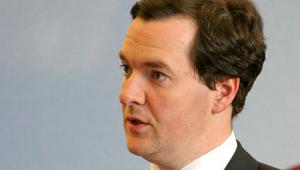By Nick Mann | 15 April 2013
Sweden’s government has announced a SEK3bn (£305m) package of investments in education, work experience, infrastructure and regional development to offset the impact of the global economic crisis.
Publishing its Spring fiscal policy bill today, the government said last year’s economic growth of 0.8% was now forecast to be followed by a 1.2% increase in gross domestic product this year and 2.2% growth in 2014. In December, it had forecast 3% GDP growth in 2014.
Unemployment, which was 8% last year, is now expected to increase to 8.3% this year before peaking at 8.4% in 2014.
Finance minister Anders Borg said: ‘There is a strong headwind from the global economy which is holding back the recovery in Sweden.’
But he added: ‘Our strong position and the confidence in Sweden’s public finances are making it possible to proceed with more measures to mitigate the impact of the international crisis on the labour market and support a gradual recovery.’
Among the measures announced today are plans to increase the number of vocational adult education places by 7,000 next year and in 2014. The number of work experience and employment training places will rise by 8,000 in both years and places on engineering and nursing programmes by 2,800.
Existing efforts to encourage regional growth will be ‘reinforced and redistributed’, with SEK40m invested this year and the next. This money will be targeted at the eight counties worst affected by the global economic slowdown.
An additional SEK700m will be spent on railway operations and maintenance this year.
Sweden currently has one of the lowest government debts in Europe, at 31.4% of GDP in 2012. This is forecast to increase to 34.7% this year before falling to 24.1% by 2017.
In light of this, the government said it was prepared to introduce additional employment measures if necessary in its 2014 Budget, due to be tabled in the autumn.
However, Borg stressed that it remained committed to returning to surplus. ‘The government's goal is to strengthen the public finances as the economy recovers so as to achieve the surplus target. We will not deviate from this objective,’ he said. Today’s forecasts predict the country will balance its budget in 2015 before posting a surplus equivalent to 1.1% of GDP in 2016.













